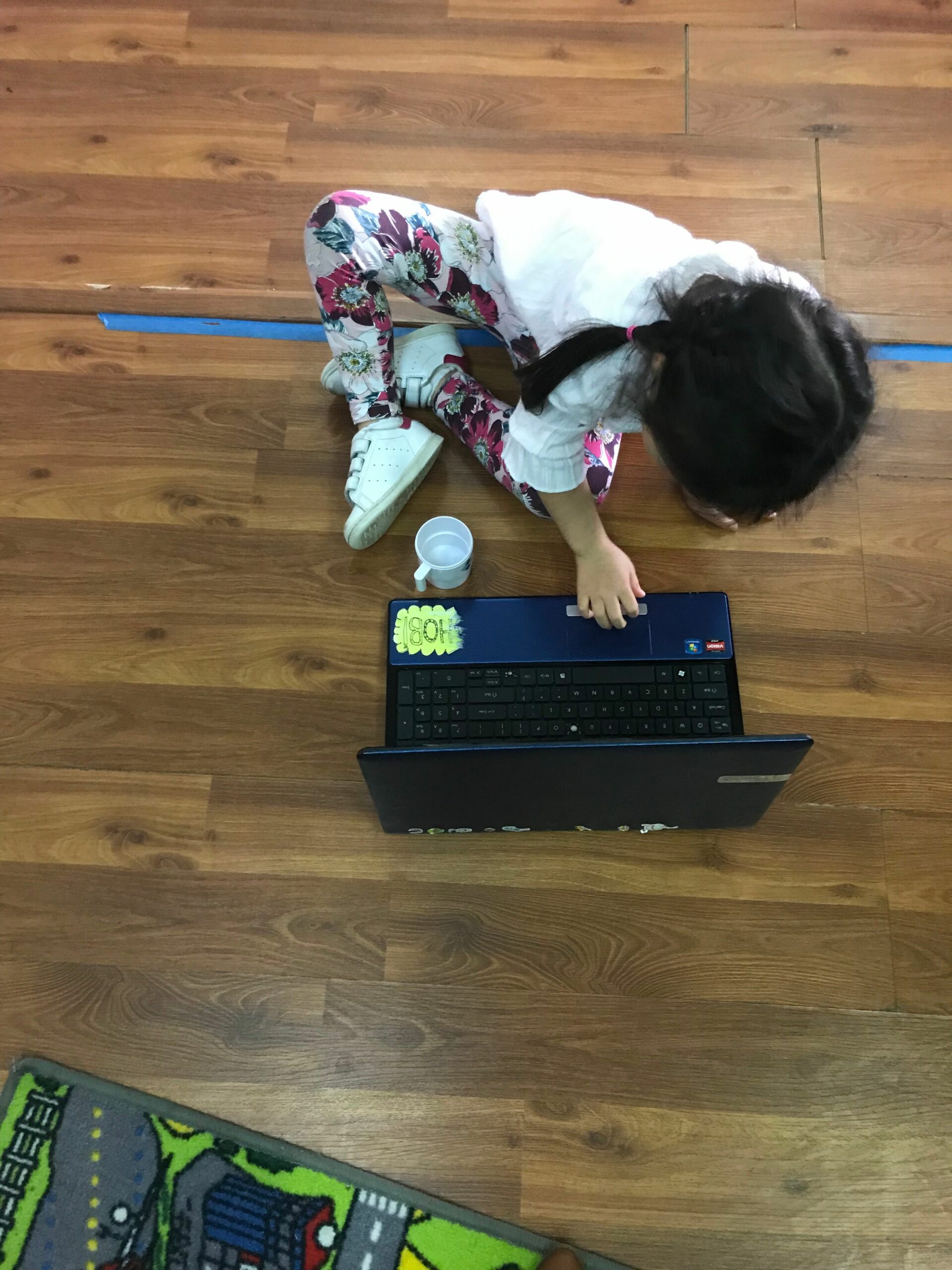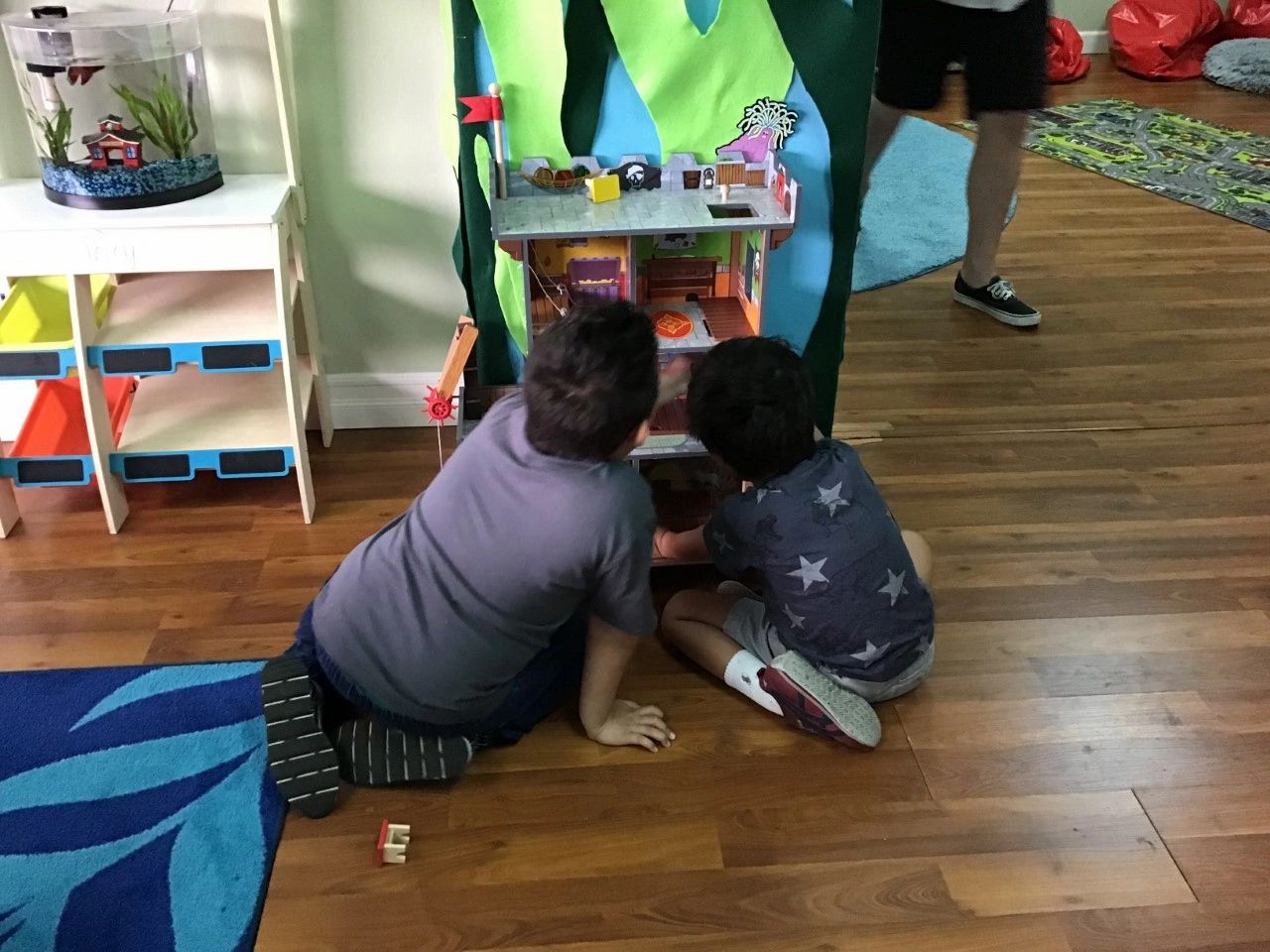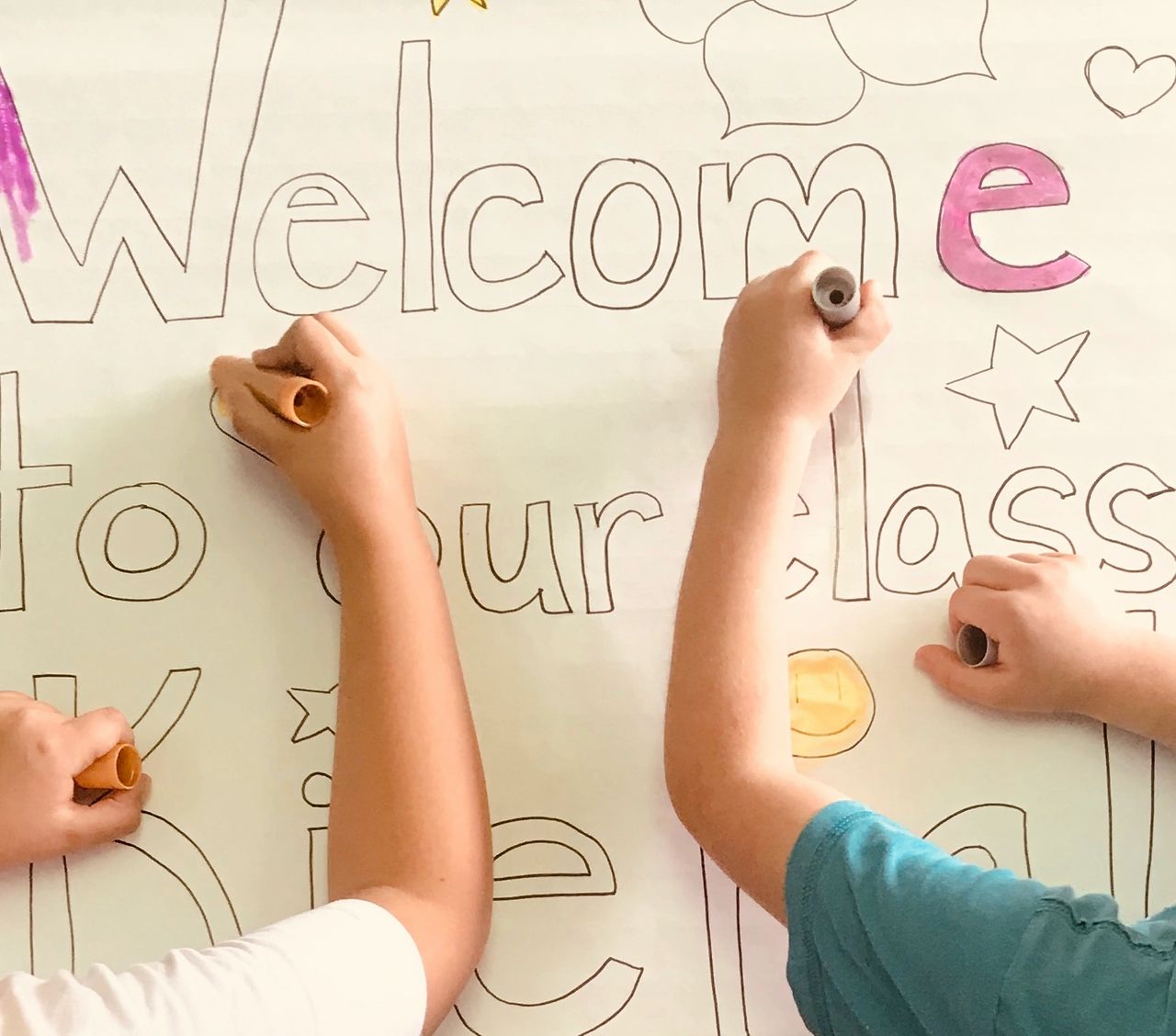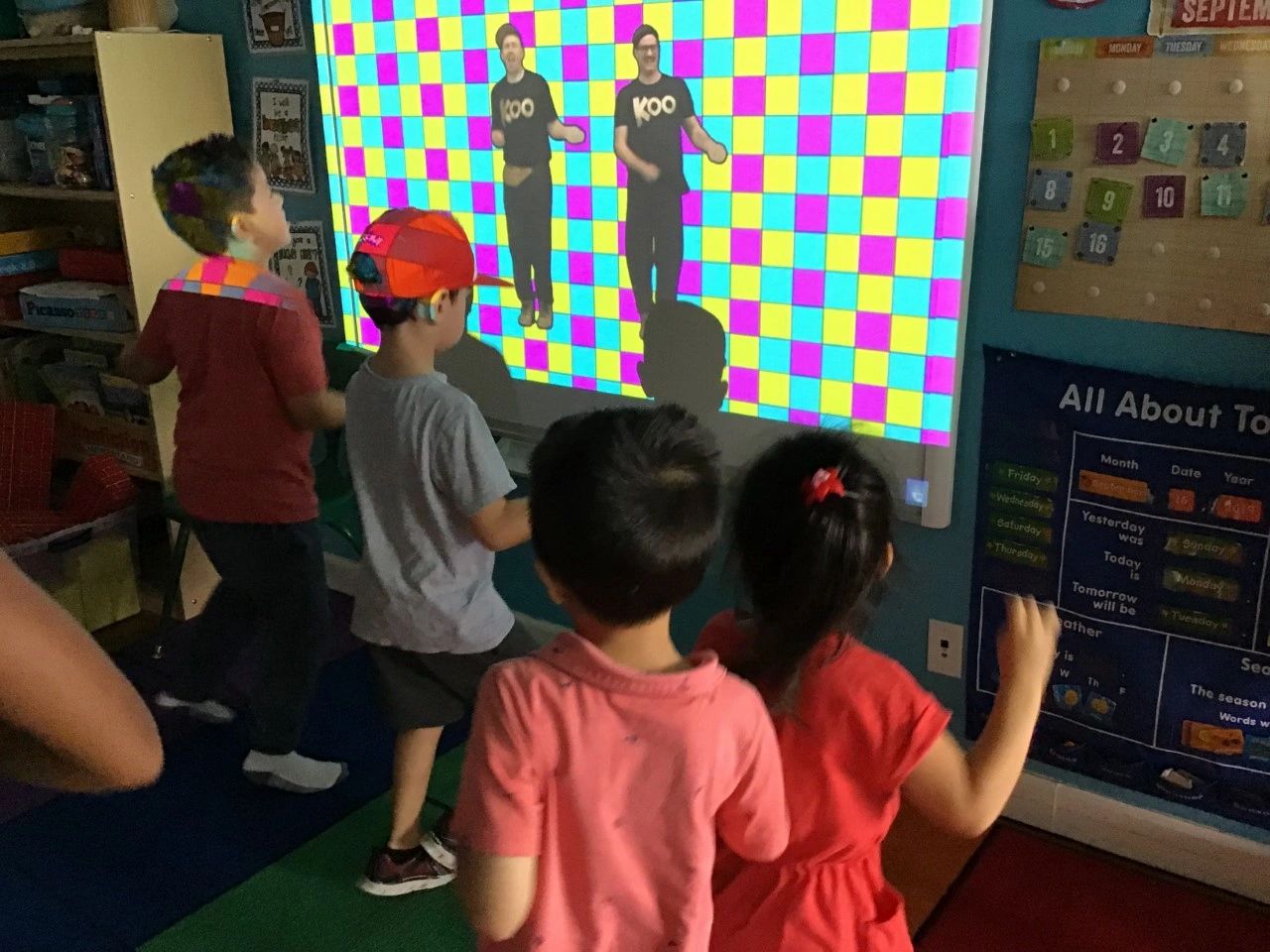Pretend Play is a Vital Part of Child Development
January 6, 2020

Pretend play is a vital part of child development. Studies show that imaginative play supports the development and expansion of receptive and expressive communication as well as motor skills, problem solving skills and self-regulation.
Autism Spectrum Disorder (ASD) affects the development of social and communication skills, which can in turn affect play. Some children with ASD have difficulty accessing their environment and will engage in play that is often repetitive and nonfunctional.
By following the stages of play from solo play to parallel play and cooperative play. As well as following the motivation of children and allowing them to explore, play can be shaped and developed.
At the start of the year, many of our students opened these old lap tops, pretended to type for a few minutes and moved on. Our teachers slowly expanded the play scheme and introduced new ideas over the past few months. So watching a few of them begin to independently expand on those play schemes and even make their own brought us all so much joy!




